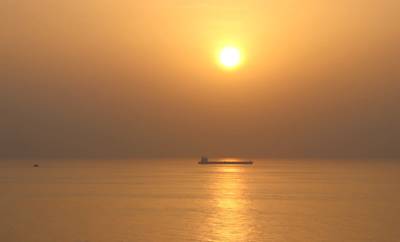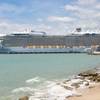South Korea Anti-piracy Unit Heading to the Strait of Hormuz
South Korea's military said on Tuesday it plans to expand the deployment of an anti-piracy unit now operating off the coast of Africa to the area around the Strait of Hormuz, after the United States pressed for help in guarding oil tankers.
Attacks on oil tankers in the Strait of Hormuz off the coast of Iran last year prompted U.S. officials to call for allies to join a planned maritime security mission.
While South Korea, a key U.S. ally, will deploy its forces to the area, including the Gulf, it will not officially be joining a coalition of forces known as the International Maritime Security Construct, the defense ministry said.
"The South Korean government decided to temporarily expand the deployment of the Cheonghae military unit," a ministry official told reporters, adding that the step would ensure the safety of citizens and free navigation of South Korean vessels.
The decision to divert the navy unit already operating southwest of Arabia is a political compromise that will not require fresh authorization by parliament ahead of an election in April.
The Cheonghae unit will continue with its mission while it cooperates with the coalition, the ministry said, adding that the United States had been briefed on the decision, which was also explained to the Iranians separately.
The United States welcomes and appreciates South Korea's decision to expand the mission of its Cheonghae anti-piracy unit to the Strait of Hormuz, William Coleman, spokesman for the U.S. Embassy in Seoul, told Reuters on Wednesday.
"This decision is a demonstration of the strength of the U.S.-ROK alliance and our commitment to cooperate on global security concerns."
The Iranian embassy in Seoul had no comment on the matter.
The Strait of Hormuz is a busy passageway into the Gulf, with vessels sailing through it approximately 900 times a year for South Korea, which gets more than 70% of its oil from the Middle East, the defense ministry says.
Sending troops to the area has been a politically sensitive issue in South Korea ahead of the election.
A survey by pollster Realmeter last week showed 48.4% of South Koreans were opposed to dispatching soldiers to the Strait, while 40.3% supported the idea.
Tuesday's move was broadly supported by lawmakers although some said it could risk Iran ties and the safety of South Koreans in the region. A number of progressive activist groups issued a statement criticizing the decision and said they will stage a protest in front of the president's office on Wednesday.
The Cheonghae unit has been stationed in the Gulf of Aden since 2009, working to tackle piracy in partnership with African countries as well as the United States and the European Union.
The 302-strong unit operates a 4,500-ton destroyer, a Lynx anti-submarine helicopter and three speed boats, South Korea's 2018 defense white paper showed.
Among its operations were the rescue of a South Korean ship and its crew in 2011, shooting eight suspected pirates and capturing five others in the incident.
The South Korean troops have also evacuated South Korean citizens from Libya and Yemen, and as of November 2018 had escorted around 18,750 South Korean and international vessels.
South Korea, the world's fifth-largest crude oil importer and one of Iran's major oil customers, stopped importing Iranian crude from May after waivers of U.S. sanctions ended at the start of that month.
(Reporting by Josh Smith and Sangmi Cha; Additional reporting by Hyonhee Shin; Editing by Michael Perry, Clarence Fernandez, Catherine Evans and Gerry Doyle)











